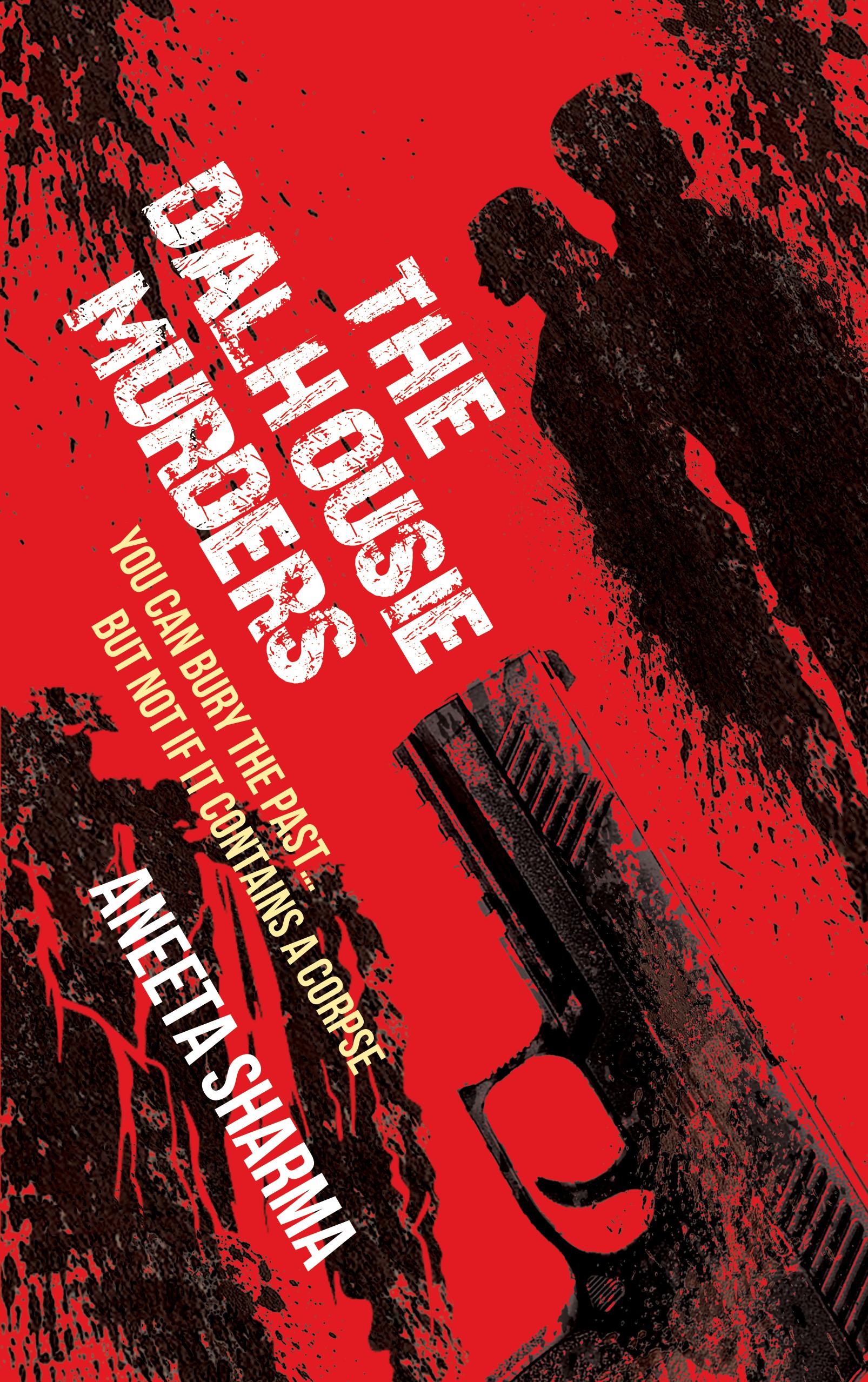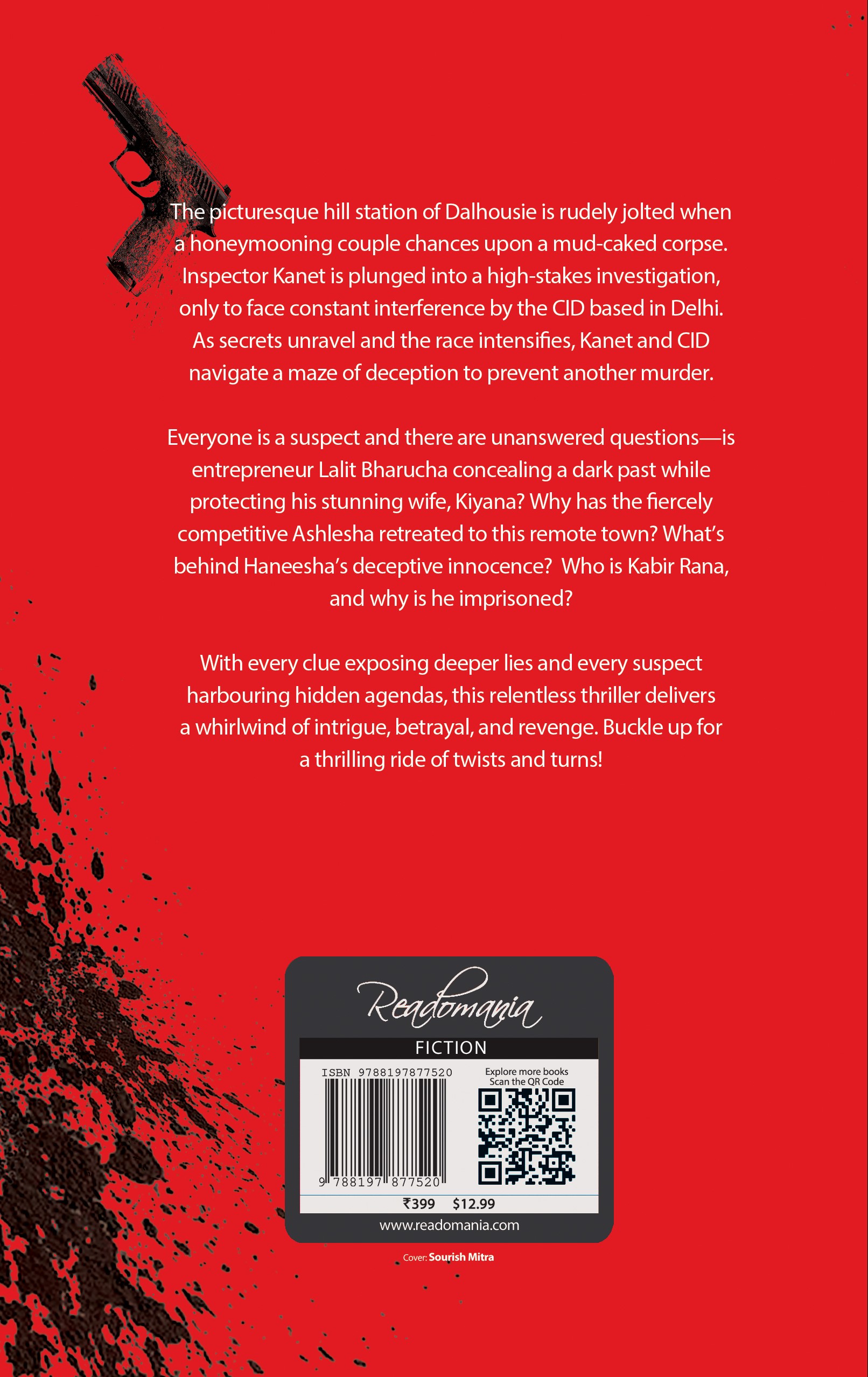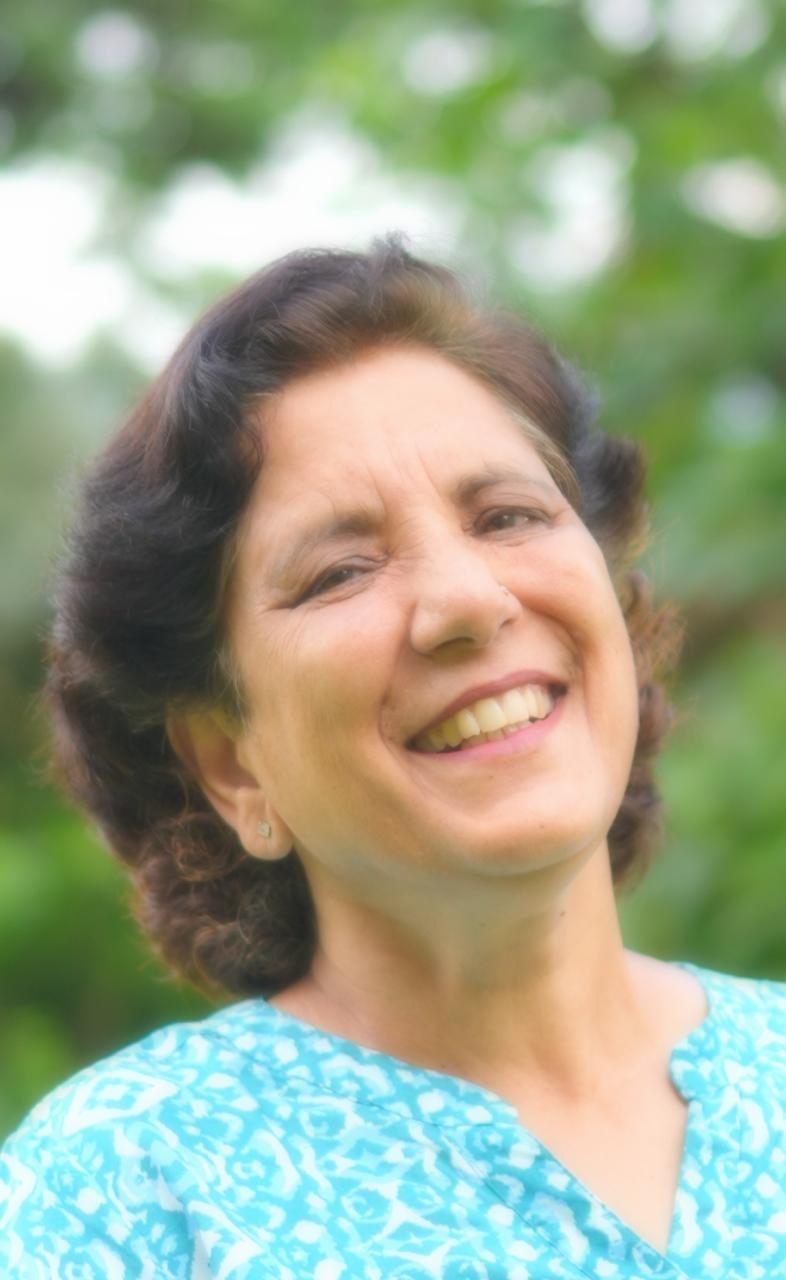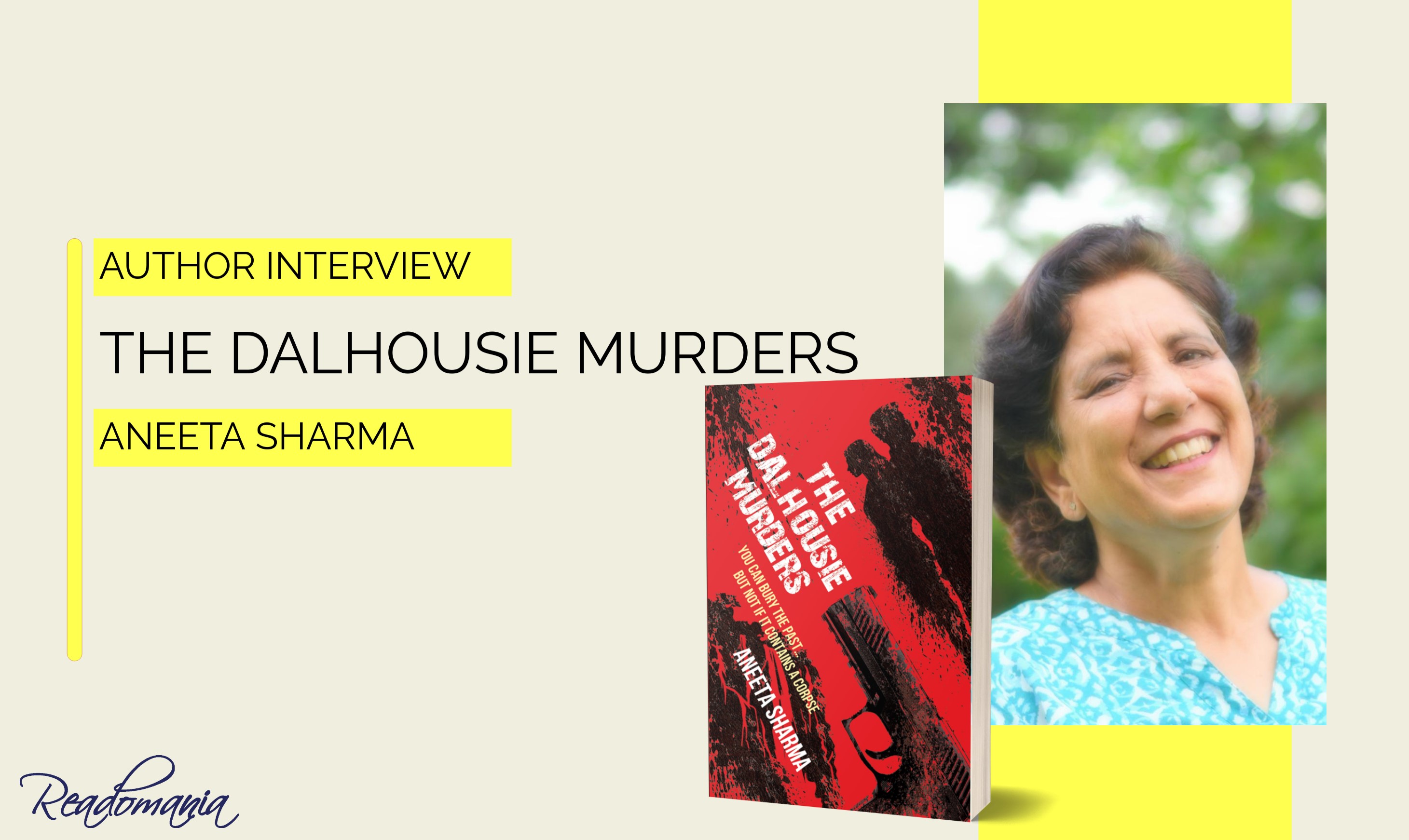Hi Aneeta, congratulations on the launch of The Dalhousie Murders!
Readomania: Tell us, what drew you to thrillers as a genre?
Aneeta: Thank you for being in conversation with me. Well, to answer your question, as a kid I grew up on a surfeit of Enid Blyton’s numerous find outers, Agatha Christie’s Hercules Poirot, Arthur Conon Doyle’s Sherlock Holmes and Gardner’s Perry Mason. The ‘who-dun-it’ factor always figured prominently. There is something about a thriller which draws the reader right into the plot. It is a great diet for the intellect as one keeps trying to pre-empt what is going to happen next. It was the perfect genre to dive into.
Personally, I steer away from brutal violence or senseless murders which can be attributed to psycho pathic killers but a ‘decent’ murder or two entrenched in a hard-hitting story with multiple twists…perfect!
Readomania: The Dalhousie Murders is almost cinematic in its approach because of the mysterious aura of Dalhousie as well as the characters, and will be great if adapted for the screen. What made you choose Dalhousie as the setting for your murder mystery?
Aneeta: When I visited Dalhousie for the first time, I fell in love with the place. It has a lovely old-world charm with its churches and colonial bungalows and a slow, leisurely- paced life. Khajjiar, the waterfalls, the Nag temple were just asking to be written about and I knew that it had to be the backdrop for whichever book I wrote next. I would like to believe that the cinematic approach you mention is my USP. I have been told by people that my writing makes them feel they can actually visualise the story unfolding. It feels good to hear that. And if it ever gets picked up for a screen adaptation, I’ll be over the moon!
Readomania: Chakshu Indraneil Diwakar is such a quirky sleuth. Will we see more of CID mysteries from your writing table?
Aneeta: I created Indraneil hoping that one day he would go on to become a serial detective but that depends on whether the readers take a liking to him. While I was waiting for TDM to find a publishing home, I did complete the next manuscript and the third one is half way through. I am indebted to Readomania’s Dipankar Mukherjee that CID has been able to step out of my laptop and hope the readers will give the chap an extended lease of life.
Readomania: The Dalhousie Murders is a relentless thriller which delivers a whirlwind of intrigue, betrayal, and revenge. How did you envision its plot?
Aneeta: Honestly, when I look back, I can’t say where it all started. It is not as though the whole plot was in my mind from the word go. It probably started off with a real-life incident in which a couple of school boys smashed a class mate’s head over a wrist watch. It happened here in Delhi long ago and was all over the newspapers. The incident would keep resurfacing in my mind and I used to wonder if the watch could have been the motive or could there have been some hidden agenda. That and the location were all I had. And then the story started tumbling out.
Readomania: There are multiple characters in TDM, each with a different personality. Were there any real-life influences when you created them?
Aneeta: Not a single character is real but every little nuance about each character is fashioned on real people. Some I know intimately; others were total strangers. Being in the army, you travel a lot and by default one meets more people than the average individual. Quite a few made lasting impressions and some of these simply seeped into my characters. I guess that is what makes the characters more relatable. In fact, my daughter-in-law asked me if Ira in TDM was a takeoff on her because she also loves getting clicked and my son does not. But like I told her, no character is a 100 percent carbon copy of any single person.
Readomania: You have been an academician all your life. When and why did you decide to start writing fiction?
Aneeta: I started quite late because I had never thought of taking up writing seriously. Maybe just one book because at the end of the day, I guess everyone has a story to tell. I too had a story in my mind but for almost seven years I never got beyond the first twenty pages. And then I lost my sister. I realized that if I wanted to get that book written, I had to do it right away or it might never get done. That is when I decided to quit my job and get down to completing that story. Initially it was to be just that one book but then ideas kept firing my imagination and now I sometimes feel that I am racing against time to write all I want to.


Readomania: You also write poetry in both English and Hindi. How different is it from writing thrillers?
Aneeta: The general opinion is that every writer has a particular niche but I feel that writing is all about giving expression to your thoughts and thoughts don’t conform to boundaries. I have been dabbling in poems since my school days. First it was by order for school journals and later for the sheer joy of it. The best part about poems is that you can say so much in such few words and even when you leave a lot unsaid, it makes perfect sense to the listener. Poetry is like a release...you pour out your heart and then move on. And no language lends itself more beautifully than Hindi when it comes to putting that spontaneous overflow of emotions into words.
With thrillers you have to be careful about connecting all the dots. In poetry, on rarely makes errors and editing if any is limited to a spell-check or finding a better alternative for a particular word. But in fiction there are so many things that need to be ironed out and so many gaps to be plugged! Ask my editor Indrani…who knows it better than her!
In one line I would say poetry comes from the heart and fiction from the head. Especially crime fiction because one has to be acutely aware of the minutest details.
Readomania: What according to you is most important aspect of a good book?
Aneeta: I agree that a good story and a well-knit plot make for a good book, but to me the most important factor is the narrative. You can put across an awesome story in a way that it turns out to be a damp squib and makes no impact at all. Or you can dress up a very simple plot so nicely that it stands out. It is all about presentation; which is why the ordinary aloo tikki on a five-star menu becomes a crispy potato patty served with spicy and sweet sauces, yogurt and sprinkled with assorted seasoning. Exotic!
Readomania: What according to you is the perfect murder mystery? Which is your favourite murder mystery and why?
Aneeta: One which keeps the reader on tenterhooks and guessing till the last page is the perfect one. There can’t be a favourite because a favourite book is one you want to read again and again. With murder mysteries, once you’ve read it, it’s over and done with. But quite a few books by Mary Higgins Clarke would qualify as the best ones I have read.
Readomania: Are you an avid reader? How important is reading for an author?
Aneeta: I was a voracious reader till about six years ago. But when I started writing seriously, I stopped reading. For the simple reason that I didn’t want anything I read to subconsciously impact my own work. And that fear took root when I was taking up Helen Keller to 10th grade students. Helen was just eleven years old when she wrote a short story titled ‘Frost King’ and she was later accused of having plagiarised it. Apparently, the story-line was similar to one written earlier and titled Birdie and his friends. Helen had no memory of ever having read that particular story. What had happened was that one of her teachers at Perkins had read the story to her. And inadvertently she had fashioned her own story on the same lines. I was paranoid that unknowingly I might let someone else’s work impact me, so it was goodbye to books.
Readomania: What do you think is the biggest challenge faced by contemporary authors?
Aneeta: Currently it’s a warped situation with the number of authors spiralling up and the number of readers going in the opposite direction. Sometimes, I feel there are more authors than readers out there and as a result the market is flooded with books. The good, the bad and the ugly! In such a scenario, how does one expect readers to find your book amidst thousands? It is very, very difficult to establish a reader base.
The second challenge, especially for Indie authors is that majority of Indian readers prefer to put their money on foreign authors and that too well-established ones. I wish the Make in India, Made in India fervour would fire the imagination of readers as well.
Readomania: What are you working on next?
Aneeta: Well, I have just completed a historical fiction which is not a period-story but entwines historical events with an imaginary story to create a thriller with loads of suspense. Writing it has been an exciting experience and I am keeping my fingers crossed.
Thank you for talking to us, Aneeta! We wish you continued success in all your creative endeavours!
 Aneeta Sharma is an educator with more than 26 years of teaching experience with senior secondary classes and a certified Reiki healer. Aneeta hails from a family which is steeped in military tradition and has her roots in Himachal Pradesh. Presently she is based at NOIDA. Currently a member of the Council for Global Education, Women’s Indian Chamber of Commerce and Industry (WICCI), she also devotes time to an NGO working for destitute children.
Aneeta Sharma is an educator with more than 26 years of teaching experience with senior secondary classes and a certified Reiki healer. Aneeta hails from a family which is steeped in military tradition and has her roots in Himachal Pradesh. Presently she is based at NOIDA. Currently a member of the Council for Global Education, Women’s Indian Chamber of Commerce and Industry (WICCI), she also devotes time to an NGO working for destitute children.


Comments